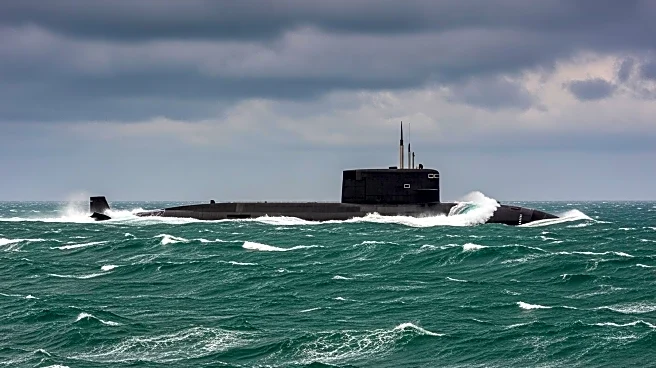What's Happening?
NATO Chief Mark Rutte has publicly criticized Russia following an incident involving a Russian submarine, Novorossiysk, which surfaced off the coast of France last week. During a speech in Slovenia, Rutte mocked
the submarine, describing it as 'broken' and 'limping home from patrol.' The Russian Black Sea Fleet denied any malfunction, stating the submarine was following navigation rules in the English Channel and was on a 'scheduled inter-fleet transit' after completing tasks in the Mediterranean. The Dutch navy escorted the submarine in the North Sea, and NATO's Maritime Command noted the French navy was observing the vessel. This incident is part of a series of sightings of Russian ships in the English Channel, raising concerns about Russia's 'shadow fleet' of aging vessels with obscure ownership.
Why It's Important?
The incident highlights ongoing tensions between NATO and Russia, particularly in maritime operations. The presence of Russian submarines and ships in European waters is a point of concern for NATO, as it underscores the strategic maneuvers by Russia in the region. The 'shadow fleet' raises environmental and security concerns due to the age and lack of proper insurance of these vessels. This situation could impact NATO's maritime strategy and increase vigilance in monitoring Russian naval activities. The incident also reflects broader geopolitical dynamics, with NATO emphasizing its readiness to defend its alliance and maintain maritime awareness.
What's Next?
NATO and European nations may increase surveillance and monitoring of Russian naval activities in the region. There could be diplomatic discussions or actions taken to address the environmental and security risks posed by Russia's 'shadow fleet.' The incident may lead to further scrutiny of Russian maritime operations and potentially influence NATO's strategic planning and resource allocation in the region.
Beyond the Headlines
The incident raises questions about the operational capabilities and maintenance of Russian naval assets. It also highlights the environmental risks associated with aging vessels operating without proper insurance, which could lead to accidents and pollution. The geopolitical implications of Russia's naval presence in European waters may affect international relations and maritime policies.









